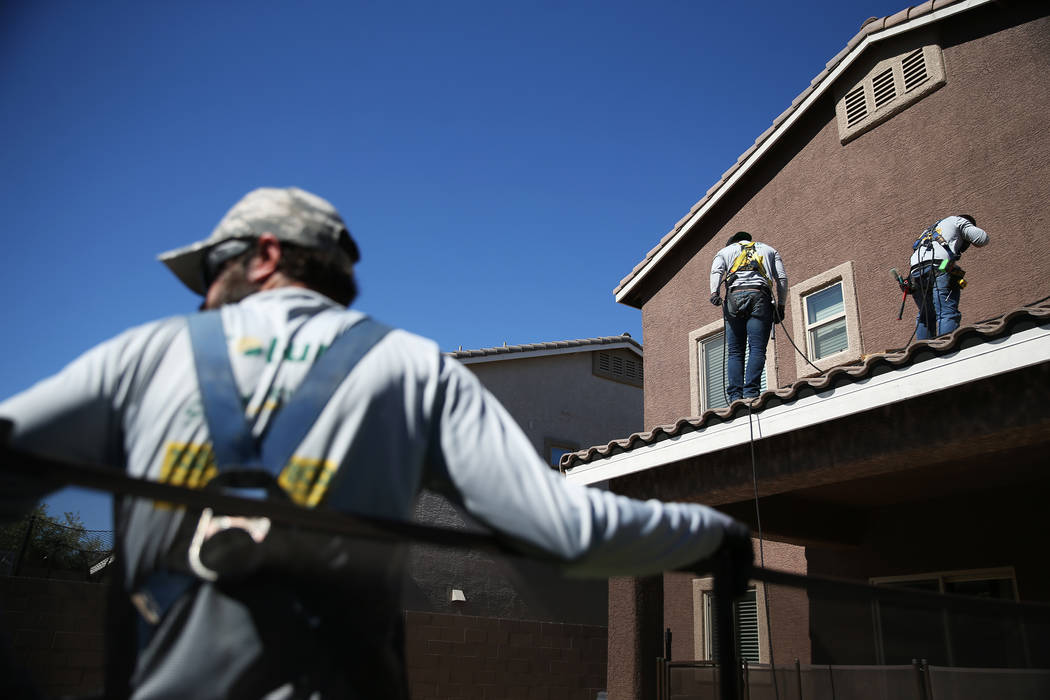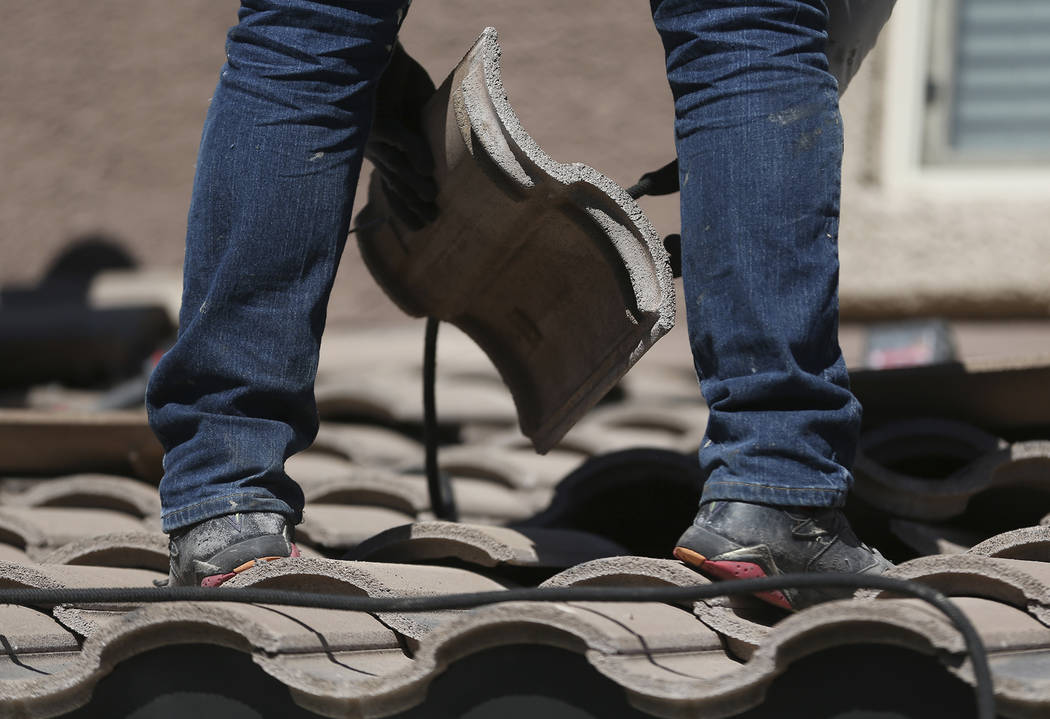New California law mandates new homes to have solar panels


California became the first state last week to sign off on a mandate that will require all new homes to have solar panels installed as they are built. According to a recent study, Nevada could more than double its existing solar capacity by 2045 if it followed suit.
A new report from Denver, Colorado-based Environment America Research & Policy Center found that a similar policy in Nevada could reduce residents’ electric bills and pollution levels.
“Building without solar panels at this point is a missed opportunity,” said Bret Fanshaw, Go Solar campaign director for Environment America. “Especially in Nevada, where it’s sunny almost every day.”
According to data from the national trade group Solar Energy Industries Association, more than 433,000 homes in Nevada were powered by solar as of September, and 11.52 percent of the state’s electricity comes from solar. Overall, Nevada ranked eighth in solar installations in the second quarter of 2018, according to a September report from SEIA.
California’s example
The California Building Standards Commission passed a first-of-its-kind measure Dec. 5 that will require builders to install solar panels in all new homes under three stories, starting in 2020.
According to the California Energy Commission, the state’s new building efficiency standards are projected to add about $9,500 to home construction costs, but save homeowners an average of $19,000 in energy and maintenance costs over 30 years.
Fanshaw said Environment America wanted to present all states and their respective decision-makers with data that showed what sort of impact this policy could have in their state.
If builders were to install solar panels on all new Nevada homes starting in 2020, the state’s solar power capacity would jump from2,658 megawatts in 2018 to 6,769 megawatts by 2045, according to the report. Annual carbon dioxide emission levels from energy use would also dip 8.4 percent between 2015 and 2045.
Policy debates
Michael Schaus, the Nevada Policy Research Institute communications director, said this sort of policy could raise costs for homeowners.
“If it made fiscal sense, builders and homeowners would already be doing this voluntarily,” he said. “That’s an indication that it would increase prices.”
Fanshaw said that while construction rates do rise with this mandate, it would save consumers money in the long run.
A 2018 study from the National Renewable Energy Laboratory found that requiring solar panels on all new homes could reduce the price of solar systems by 59 percent.
“I’m sure there would be plenty of homeowners excited about this,” Fanshaw said. “If you’re streamlining this (solar panel installation) process, you can reduce cost in the industry and hopefully pass it along to the consumer.”
But Guy Snow, president of Solar NV, a local chapter of the American Solar Energy Society nonprofit solar advocacy group, doesn’t see such a policy in Nevada any time soon. He said the city’s population would see more benefits using community solar projects that provide solar energy to homeowners, renters and businesses or through Question 6 — an upcoming 2020 ballot measure that would require the state to purchase 50 percent of its power from renewable sources by 2030.
Either way, Snow said it’s important to start working on solar projects today.
“We’re planning for our future and the next generation to come,” he said. “Now is the time.”
Time crunch
In November, the U.S. government released an assessment that said continued growth in emissions could lead to a decline in crops and more frequent and intense climate-related events like wildfires and droughts.
According to Environment America’s report, installing solar panels in all new homes in the U.S. could cut 161 million metric tons of carbon dioxide equivalent in 2045, akin to taking 34 million cars off the road.
“The window is getting smaller and smaller to address the issue for climate change,” Fanshaw said. “Now is the time where we need to think about … what decisions we’re making.”
Contact Bailey Schulz at bschulz@reviewjournal.com or 702-383-0233. Follow @bailey_schulz on Twitter.













